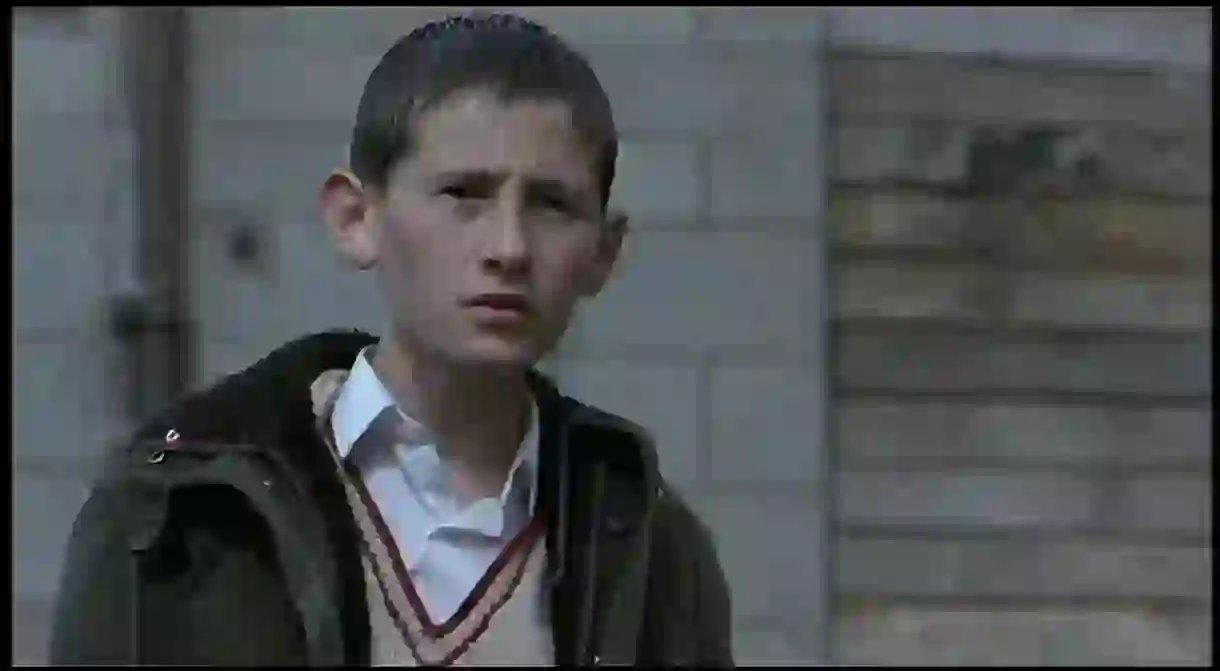From Heroin To Hitchcock: Top Ten Scottish Films

If Pixar’s film Brave told us anything it’s that a stereotypical view of Scotland remains potent. However there is another view of Scotland; one embodied in the films below. Whether charming, gritty, horrifying, comic or mournful, each film here offers valuable insight into contemporary Scotland.
The 39 Steps (1935)
From arguably the greatest British director of all time comes one of the best British films of all time, loosely based on John Bucan’s spy thriller of the same name. In typical Hitchcockian devilishness, myth and rumour surround the production of The 39 Steps. With the usual suspense, intrigue, and mirth, and as a test pilot for later works Saboteur (1942) and North by Northwest (1959), The 39 Steps is another faithful Hithcock classic, and an important piece of British cinema history.
Whisky Galore! (1949)
Maybe one of the only films to embrace the use of an exclamation mark, Whiskey Galore! has to surely be imagined shouted from a raucous yet charmingly dapper gentlemen from a PG Wodehouse novel. A shower of Jeeves and Wooster-esque mayhem, this 1949 Ealing comedy film depicts a shipwreck near a Scottish island and the attempts of islanders to pinch the ship’s cargo of whiskey. The directorial début from Alexander Mackendrick, you can find his stamp on later works The Man in the White Suit (1951) and The Ladykillers (1955).
The Prime of Miss Jean Brodie (1969)
Long before Scottish national treasure Maggie Smith was transfiguring into a furry feline or getting her kicks at Gryffindor quidditch matches, she played another classic teacher, for which she won the Academy Award for Best Actress, in The Prime of Miss Jean Brodie. Charting the rise and fall of the titular character’s teaching career over several years at a highly conservative all-girls school in 1930s Edinburgh, Maggie Smith takes to role of Miss Jean Brodie with all the tenacity for which she is famous. And while a little more realistic than chanting incantations in the halls of Hogwarts her performance is no less magical. A truly wonderful piece of Scottish film.
https://www.youtube.com/watch?v=AmNQVo1qpD8
The Wicker Man (1973)
Generating little acclaim at its time of release this morbid fable of pagan sacrifice and folk horror is now a firm favourite among the roaming hordes of cult classic martyrdom. Featuring the British master of on screen villainy, Christopher Lee at his most wonderfully foreboding, The Wicker Man is undoubtedly one of the best British horror films ever made. With the ghoulish scenes shot almost entirely in the small Scottish towns of Gatehouse of Fleet, Newton Stewart, Kirkcudbright, and the ominous burning man scene filmed at Burrow Head, The Wicker Man is firmly embedded in Scottish roots.
Gregory’s Girl (1981)
Famously rerecorded so that American audiences could understand the strong Scottish accents, writer-director Bill Forsyth’s Gregory’s Girl is a wonderfully innocent coming of age comedy as well as a signal of the emergence of a great Scottish talent. Caught up in the spills of unrequited love, charmingly awkward, and with an incomplete knowledge of just quite how the world works, these are all themes with which both teenagers and adults can relate and garnered the film critical and public acclaim at its time of release which continues to the present day.
Local Hero (1983)
Just two years after Bill Forsyth’s glowingly received Gregory’s Girl came Local Hero. The story centres on an American oil trader named ‘Mac’ McIntyre (Peter Reigert) who is sent by outlandish CEO Felix Happer (Burt Lancaster) to the fictional Scottish coastal town of Ferness to enter into negotiations with the local community. His task is to purchase the village and surrounding properties to make way for a new oil refinery. As charming as Gregory’s Girl, it’s the unfolding development of McIntyre’s personality, and that of the townspeople of Ferness, from which the film draws it healthy beating heart.
Trainspotting (1996)
Without question one of the most famous Scottish films, and one of the most quotable films of all time, in particular the famous opening monologue: ‘I choose not to choose life: I choose something else. And the reasons? There are no reasons. Who needs reasons when you’ve got heroin?’ Adapted from the novel of the same name by Irvine Welsh, Danny Boyle’s second feature film tapped into the youth sub culture of the 1990s in a burst of cartwheeling exuberance whilst also putting Scotland’s serious heroin problem under the microscope.

Breaking the Waves (1996)
The first film in Danish director Lars Von Trier’s ‘Golden Heart Trilogy’ which also includes The Idiots (1998), and Dancer in the Dark (2000), Breaking the Waves reveals Von Trier’s early audaciousness and his genesis prior to becoming one of Europe’s most controversial and maverick auteurs. Despite the humble cinematic techniques Von Trier manages to create a grand and sweeping tale of love and tragedy which belies his latter day reputation for perversity.
Ratcatcher (1999)
Nowadays Lynne Ramsay is known for her mother son nightmare piece We Need To Talk About Kevin so people may not be familiar with her languorously paced early works Ratcatcher and Morvern Callar (2002) which both marked the arrival of a new British auteur. In 1999 The Guardian’s Peter Bradshaw called Ratcatcher ‘poetry from the Rubbish tip‘ both in reference to the film’s subject matter and Ramsay’s revelation of a début amidst a tide of trashy British films.
Sweet Sixteen (2002)
In this gritty tale, Ken Loach offers an alternative take on growing up working class in Scotland’s largest city. With over 330 swear words and subtitles for those not familiar with a thick Glaswegian accent, Loach attempts to offer a more honest approach to Scotland’s social ills depicting typical juvenile delinquent Liam and his strained attempts at creating a better life for himself and his mother. Loach manages to get the best from his actors here, although sometimes it’s difficult to tell whether they are acting or are simply being themselves.













